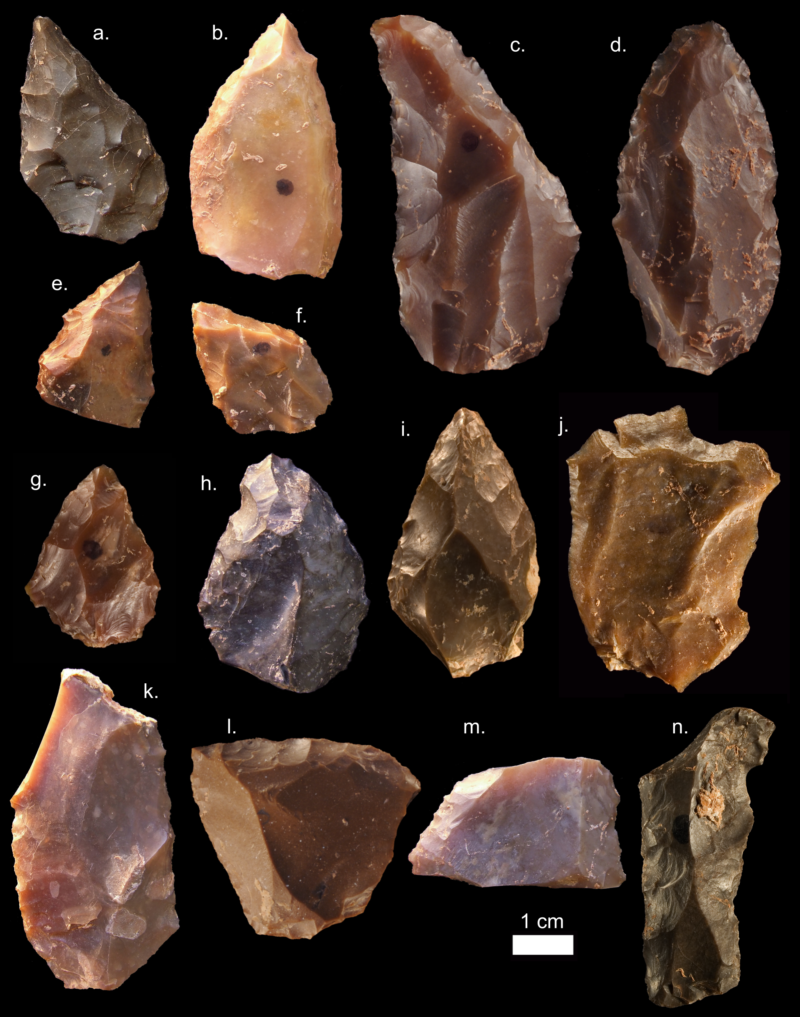New study tracks the evolution of stone tools

Enlarge / Some of the Middle Stone Age stone tools from Jebel Irhoud. Pointed forms such as a-i are common in this period. Also characteristic are the so-called Levellois prepared core flakes. (credit: Mohammed Kamal)
For at least 2.6 million years, humans and our ancestors have been making stone tools by chipping off flakes of material to produce sharp edges. We think of stone tools as very rudimentary technology, but producing a usable tool without wasting a lot of stone takes skill and knowledge. That's why archaeologists tend to use the complexity of stone tools as a way to measure the cognitive skills of early humans and the complexity of their cultures and social interactions.
But because the same tool-making techniques didn't show up everywhere early humans lived, it's hard to really compare how stone tool technology developed across the whole 2.6 million-year history of stone tool-making or across the broad geographic spread of early humans. To do that, you've got to find a common factor.
So a team led by anthropologist Aeljko ReA3/4ek of the Max Planck Institute for Evolutionary Anthropology decided to study whether the length of the sharp, working edge of stone flakes changed over time relative to the size of the flakes. A longer, sharp edge is more efficient and takes more control and skill to create, so ReA3/4ek and his colleagues reasoned that it would be a good proxy for how well early humans understood the process of working stone and how well they shared that knowledge with each other.
Read 16 remaining paragraphs | Comments